It may already be too late to defeat the tag team of Putin and Xi
Putin has played a weak geo-hand brilliantly, and in one avenue of hard power, is even more formidable than Xi. The West has only itself to blame for allowing this fight to get out of control.
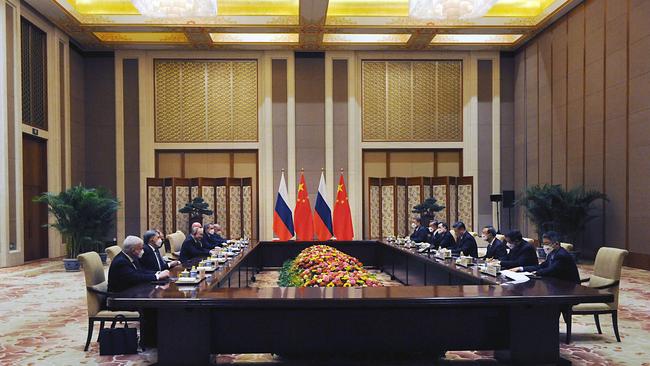
The new emperor of China, the modern tsar of Russia. Leaders not just of powerful nations but, in their own eyes, of giant, historic, world-shaping civilisations.
In style the two men could hardly be more different. Xi is ponderous, considered, each word from his lips carefully crafted. He sits atop a mighty state system. Putin is visceral, unpredictable, agile, a freelancer, at times blunt and outrageous.
Yet they bear striking resemblances. Each has dispensed with the institutionalism that preceded them and become dictator for life, surrounded by yes men. Neither man hears advice, or facts, he doesn’t like.
Having both been formed in the internationalist ideology of communism, they have instead retreated to high-octane nationalism and cultural chauvinism. Putin has conscripted Russian Orthodox religion and prejudice as surely as Xi has conscripted Confucianism.
Both men pursue the breaking of Western strategic strength and the expulsion of the United States from their regions, as well as wider ambitions.
China is vastly more powerful than Russia and their history of mutual animosity is spectacular. But the enemy of my enemy is my friend. Just as Richard Nixon and Henry Kissinger co-opted the power of a rising China to hurt the Soviet Union, now Xi and Putin are co-opting each other to overextend and hopefully exhaust the US. If they succeed, the consequences for Australia are disastrous. The entire global security order, such as it is, and certainly Australia’s place in it, depends on two irreplaceable foundations: the US alliance system in Asia, and the NATO alliance in Europe.
Putin has played a weak geo-hand brilliantly to maximise Russian power and influence.
Now Putin is threatening Ukraine. He has 130,000 Russian troops on Ukraine’s borders, both its border with Russia and its border with Russia’s client state, Belarus.
US President Joe Biden has promised a harsh response if Moscow invades Ukraine. This will not be a direct military response but “the mother of all sanctions”.
But Putin has a thousand options short of outright invasion. US intelligence agencies have said that they believe Moscow could stage false attacks on Russian enclaves it controls within Ukraine and use these as a pretext for military intervention.
British intelligence has said Moscow is planning to destabilise Ukrainian politics and install a pro-Moscow puppet government in Kiev.
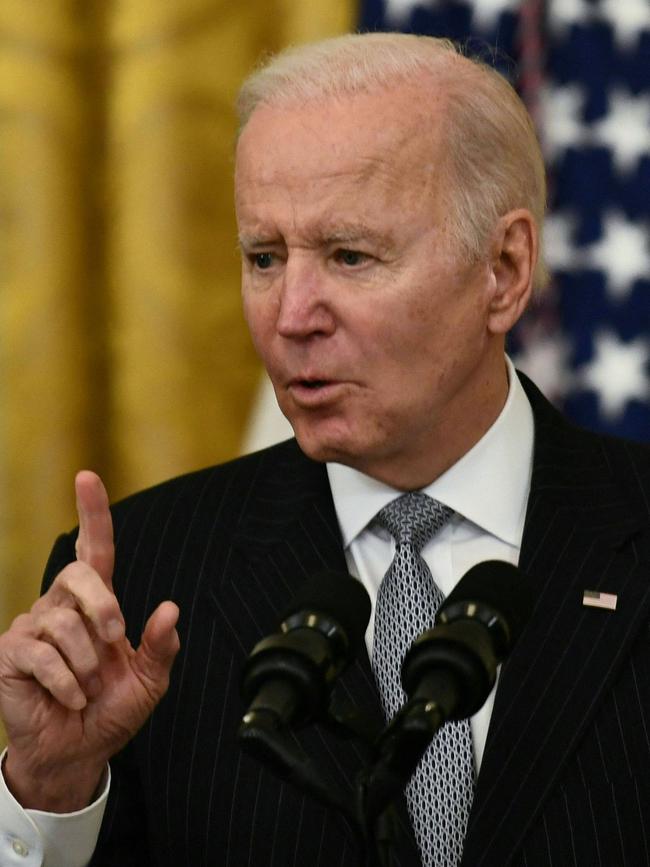
Ukraine was part of the old Union of Soviet Socialist Republics and became a fully independent state when the Soviet Union collapsed at the beginning of the 1990s.
In 2014, Moscow occupied Crimea, part of Ukraine. It also sponsored an ethnic Russian independence movement in the Donbas region.
In Donbas it used Russian soldiers disguised as civilians. This, combined with the support of some disaffected ethnic Russian Ukrainians, produced enough deniability, enough ambiguity, enough delay in the Western response, that the de facto independence of Donbas, or rather its status as a Moscow outpost, was established.
Putin deserves serious analysis, because he is a serious figure – embarked now with Xi, separately but in co-ordination, and even in some co-ordination with Iran, in destroying the US strategic order.
So who is Vladimir Putin? Famously, he was a lieutenant colonel in the KGB, stationed for a time in East Germany. He was born in St Petersburg, when it was Leningrad, and had 16 years in the KGB. He left to enter St Petersburg politics as the Soviet Union was unravelling, a time of gangsters, lawlessness and chaos. It is said in St Petersburg he learnt one lesson – he who kills first, wins. He joined the administration of Boris Yeltsin, modern Russia’s only democratic leader, and rose spectacularly. He became the head of Russian security then, in the twinkling of an eye, prime minister, and then President.
Putin’s central ideological statement was this: “The demise of the Soviet Union was the greatest geopolitical catastrophe of the (20th) century. As for the Russian people, it became a genuine tragedy. Tens of millions of our fellow countrymen found themselves beyond the fringes of Russian territory.”
Putin’s strategic ambition was to restore Russian dominance of the territories which were formerly part of the Soviet Union, and then of the nations which were once part of the Warsaw Pact. He now totally dominates Belarus and Kazakhstan. He has pursued a strategy of sponsoring breakaway movements in former Soviet nations and enabling them to secure portions of territory he can dominate and use. This has happened in Georgia and Moldova.
Putin took to heart the methods of the KGB. The expansion of NATO, ill-advised as it was, did not create the Putin personality or the paranoia of Russian ethnic nationalism. The assassination of Russian defector Alexander Litvinenko, and the attempted assassination of Sergei Skripal, both in the UK, demonstrated that the West could not protect Putin’s enemies from him.
Putin has become rich and oversees an ever more authoritarian society. He has much smaller resources, far fewer tools, than Xi, but he has played an even more virtuoso game using almost all the same skills as Beijing.
In one avenue of hard power, he is even more formidable than Xi. Putin has thousands of nuclear weapons. He has modernised his conventional armed forces and they are now formidable.
Like China, Putin’s Russia has mastered grey-zone tactics, using soldiers out of uniform, mercenaries where necessary, vehicles and ships whose military nature is disguised.
Like China, Russia is the master of cyber technology. Paul Dibb, a former senior defence and intelligence figure who knows Russia better than any Australian at his level, charts one possible scenario: Russia mounts a devastating cyber attack on Ukraine, which wipes out its power grid in the winter cold, then uses infiltrated Russian agents to murder ethnic Russian Ukrainians. This furnishes a pretext of chaos and “genocide” against Russians to justify a limited invasion.
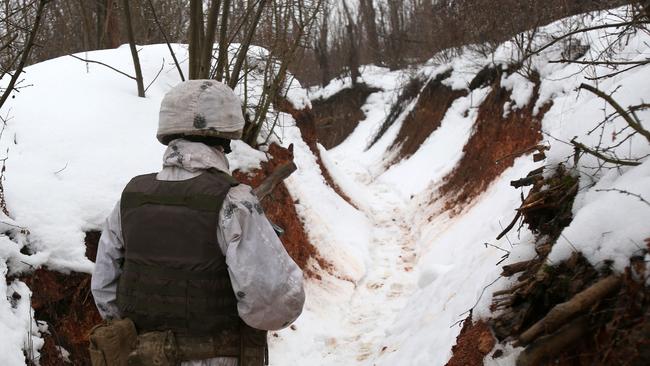
Putin has also undertaken successful military adventures abroad. He is decisive in Syria, ensuring the survival of Bashar al-Assad’s government. Unencumbered by restrictive rules of engagement or queasiness about his partners, Putin can produce the strategic outcome he wants in Syria, unlike the US, NATO or any combination of Western powers.
Pause for a moment and reflect – Putin does all this with an economy about the size of Australia’s. This, by the way, should throw the astonishingly feeble nature of Australian defence efforts into a merciless light, but that’s another story.
The Western response to Putin’s aggression in Ukraine has so far been feeble and ineffective. Neither the US, nor any other Western nation, will send troops to defend Ukraine.
That’s fair enough. Any appetite for Western military intervention in anybody else’s ground war is gone.
Ukraine itself, as Dibb points out, is very far from a perfect democracy, with limited free press, something less than a free judiciary and plenty of corruption. But it is an independent nation of 44 million people which has no desire to be reabsorbed into Russia. It is a democracy of sorts. It gave up the nuclear weapons it inherited from the Soviet Union partly in exchange for promises about its future security from Moscow and Washington.
The Biden administration has sent token numbers of troops to NATO allies in east and central Europe to bolster its commitment to them, but in no circumstances to intervene in Ukraine.
So the only credible Western deterrence to Russian aggression lies in strong sanctions. Russia’s economy has its problems but it is essentially a commodities economy and as such it’s strong right now.
Putin has built his economy to resist Western sanctions. He has international reserves of more than $US630bn ($882bn). And his domestic repressive mechanisms are so strong now that even tough Western sanctions would not threaten his control at home.
But the US could cripple Russia economically by locking it out of the dollar trade system and by leading a Western boycott of Russian resources.
However, here the West’s political decadence and feeble confusion has weakened its ability to respond. All Western economies depend fundamentally on fossil fuels, climate summits notwithstanding. But climate change activism means most Western nations are scaling down their production of fossil fuels.
This course of action has not led to much lowering of the use of fossil fuels globally, but the dictatorships that now produce them in huge quantities – China, Russia, the Middle East oil states – have developed huge and increasing geostrategic leverage.
Russia provides nearly half of Germany’s energy imports. Germany, bizarrely by closing down its nuclear energy plants, is deeply dependent on Russian gas. Berlin has thus been notably reluctant about serious sanctions. It has also been reluctant about providing Ukraine with the arms to defend itself.
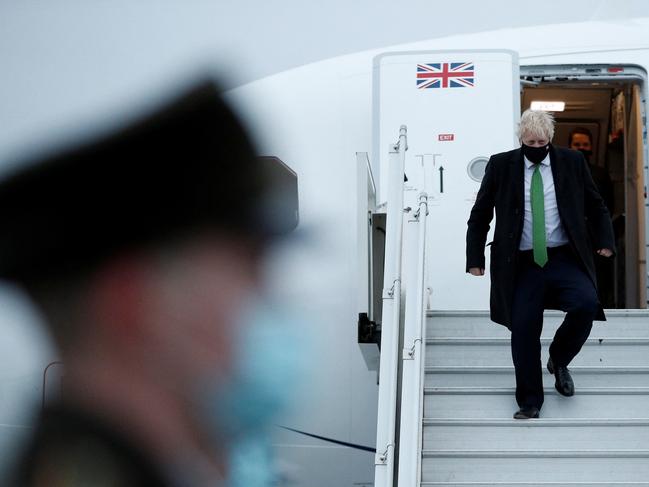
Even the Biden administration may think twice about the extent of sanctions. For sanctions to have any real effect on Russia, it would have to be denied a big chunk of its commodity income. But Russia is such a giant part of the global commodities production that this would inevitably see commodity prices skyrocket. That means higher energy costs for US and European consumers.
So here is the question: the West is not prepared to fight for Ukraine, fair enough. Is it prepared to pay any significant cost at all, even a financial cost, to stop Russian aggression? Beijing, among others, awaits the answer.
There is always a cost to conflict, even financial conflict. There is always a price for liberty. Appeasement is always the cheapest option short-term.
One of the worst features of recent Western foreign policy debate has been a ridiculous resurgence of a crude faux-realism. Realism sounds good but realism as a school of foreign policy is inherently unreal. It holds that all nations are more or less morally equivalent and the character of a political system doesn’t much affect a nation’s interests or its actions.
This is the most absolute and ridiculous nonsense. Under this interpretative prism, North Korea and South Korea should behave the same. They occupy the same spot in the map, they should have the same interests. But one is a dynastic communist dictatorship, one a liberal democracy. That’s all the difference in the world.
You hear now a great deal of foolish talk that Ukraine is a natural part of Russia’s great power sphere of interest and none of our concern. The same people will argue that Taiwan is a natural part of China’s great power sphere of interest and none of our concern.
One day, if the Americans ever lose interest in defending us, and given that we have made no provision to defend ourselves, there might be in Western capitals a discussion along the lines of: well, Australia was always racist and not really legitimate, it was inevitable that a Great Power would occupy that land mass, in any event it’s a small population, a long way away, and of no concern to us.
What prevents that kind of amoral pre-emptive surrender is the security order provided by the US alliance system in Asia, by NATO in Europe, by the US alliance with Israel and quasi-alliance with the Gulf Arabs, and US influence globally.
Putin and Xi could have no more useful idiots than those who argue that this security system is an anachronism not worth the cost and, anyway, beyond our capability now in what they must assume is the twilight of the West.


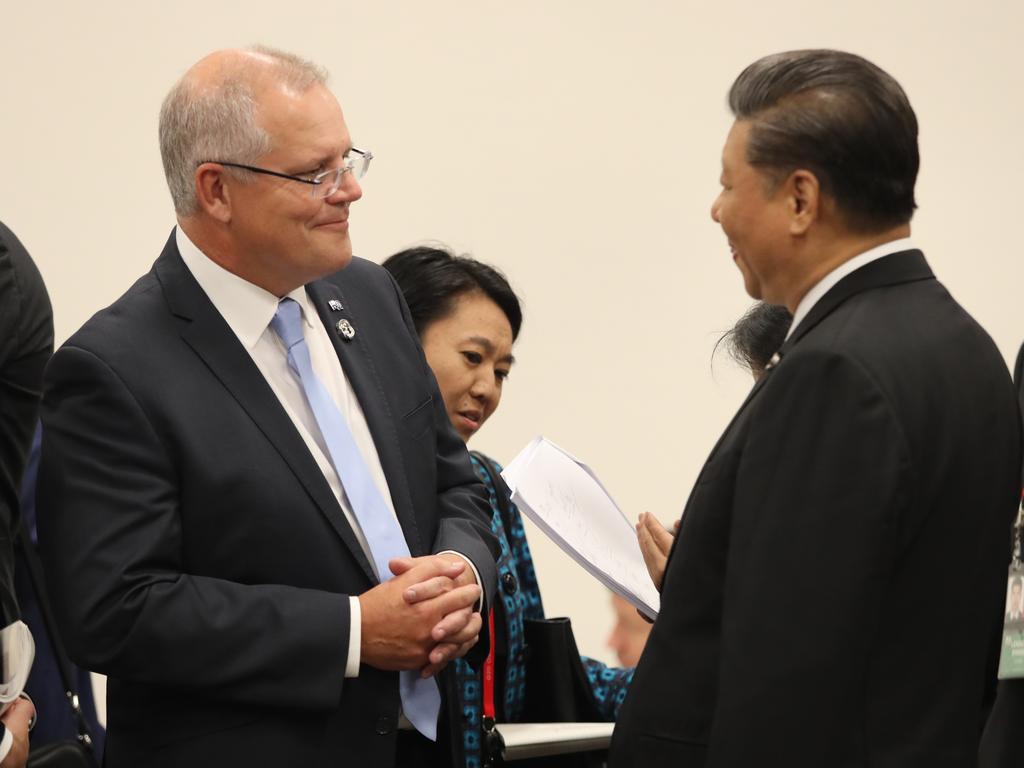
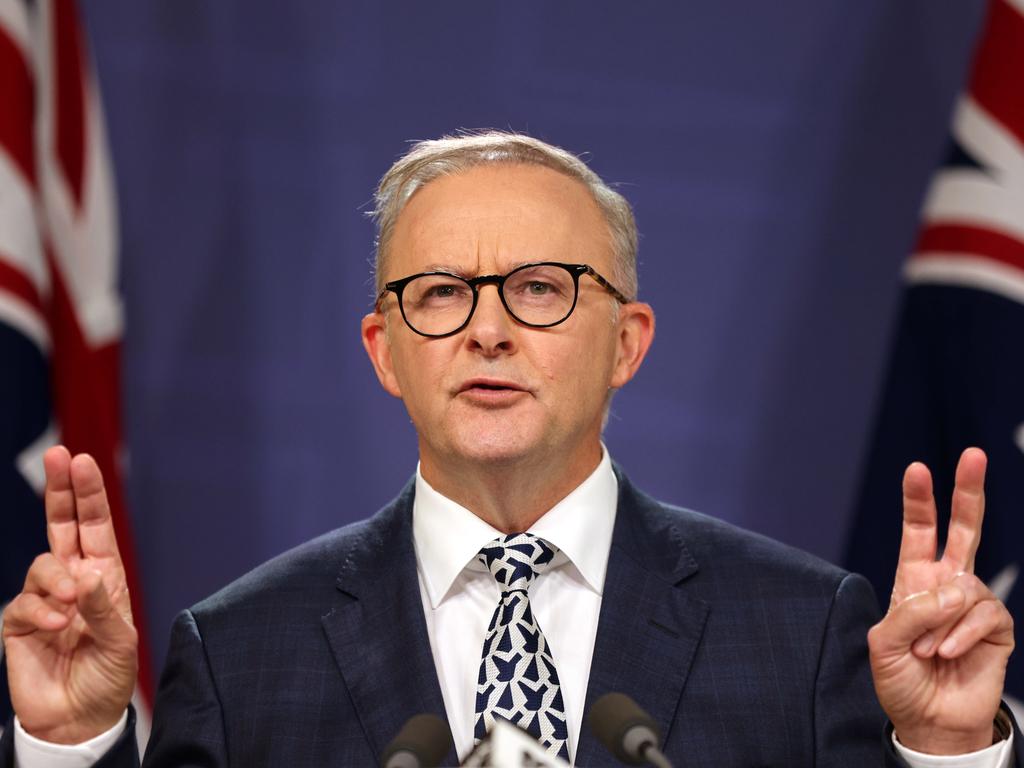

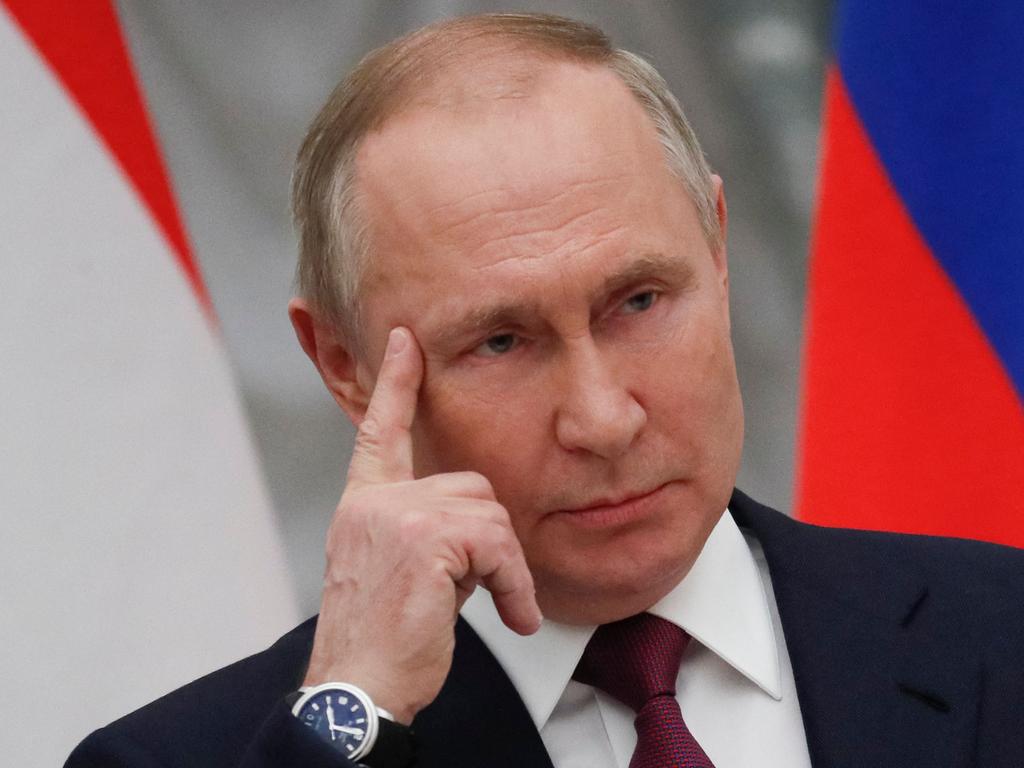
Xi Jinping welcomes Vladimir Putin to Beijing. The West’s greatest adversaries come together. Putin wants to do bad things to Ukraine. Xi offers a modicum of support and solidarity – a fellowship of dictators.